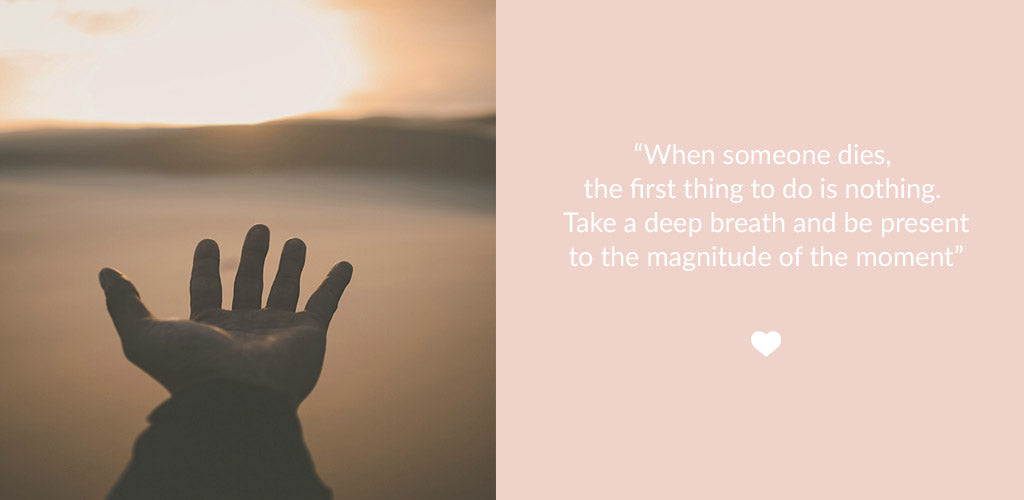
Is it possible to just ‘be’ when someone dies?
Often, no. Some deaths are sudden and shocking. Fear, panic and immediate action are understandable, natural and often necessary. But another kind of death, the expected kind that doesn’t hide its impending arrival, can also be a chance to meet death with a different approach.
It’s put beautifully in the opening words of a post from The Dying Well Initiative from the Global Wellness Institute about ‘expected death’.
“When someone dies, the first thing to do is nothing. Don't run out and call the nurse. Don't pick up the phone. Take a deep breath and be present to the magnitude of the moment.”
Magnitude – not a word used regularly in relation to someone dying – but apt in many ways to the moment when they take their last breath, when their body and soul untwine, and when - depending on your beliefs – a new journey begins.
If you can just ‘be’ after someone you care for has died, you may be doing both them and you a great service, allowing them to slip away in peace and allowing you to appreciate, understand and acknowledge that ‘magnitude’ of what has passed.

Photo: Billy Pasco
Claire Tan, who has worked in palliative care for 30 years and now has her own business Last Chapter, supporting people with end of life care, has witnessed all kinds of deaths and reactions to them.
“Some people will feel panicked and scared, and that is understandable. Others have the confidence to sit there, to do nothing and to take in the moment.
“If you can be calm, the person themselves may feel calmer as they are released from a life which may have been hard for them towards the end. And if you are able to meet the end of their life peacefully, it can make your own grief process less complicated.”
The ability to be able to stop, to take a deep breath and to be truly present at such a tumultuous time begins before death occurs. It takes bravery as well as the confidence that Claire mentions, and it also involves doing that very un-British thing of talking about the end of life before it happens.
“It is about being prepared and knowing what to expect,” says Claire. “If you have spoken about it, asked questions and found answers then you will know what you need to do – or not do – when the time comes, you are less likely to be panicked or fearful.”
For an expected death, though still so sad, is not a reason to panic. If anything, it is a chance to pause and take in, perhaps to perform a ritual or share some special words, before the juggernaut of death admin and real-life demands hit in the days and weeks that follow. If you have prepared and been supported in the weeks before, that side of things will also be less daunting.
So, if a death is expected, there is much you can do to be as ready (as you can be) for what you know will one day happen, and by doing so you will be doing yourself and those who love you a great kindness.

Photo: Gert Stockmans
As death doula Sarah Kerr says in the words posted by The Dying Well Initiative:
“Sit at the bedside and just be present to the experience in the room. What is happening for you? What might be happening for them? What other presences are here that might be supporting them on their way? Tune into all the beauty and magic.
“….Give yourself five minutes or 10 minutes, or 15 minutes just to be. You'll never get that time back again if you don't take it now.
“…..Our bodies can gallop forwards, but sometimes our souls haven't caught up. If you have an opportunity to be quiet and be present, take it.”
